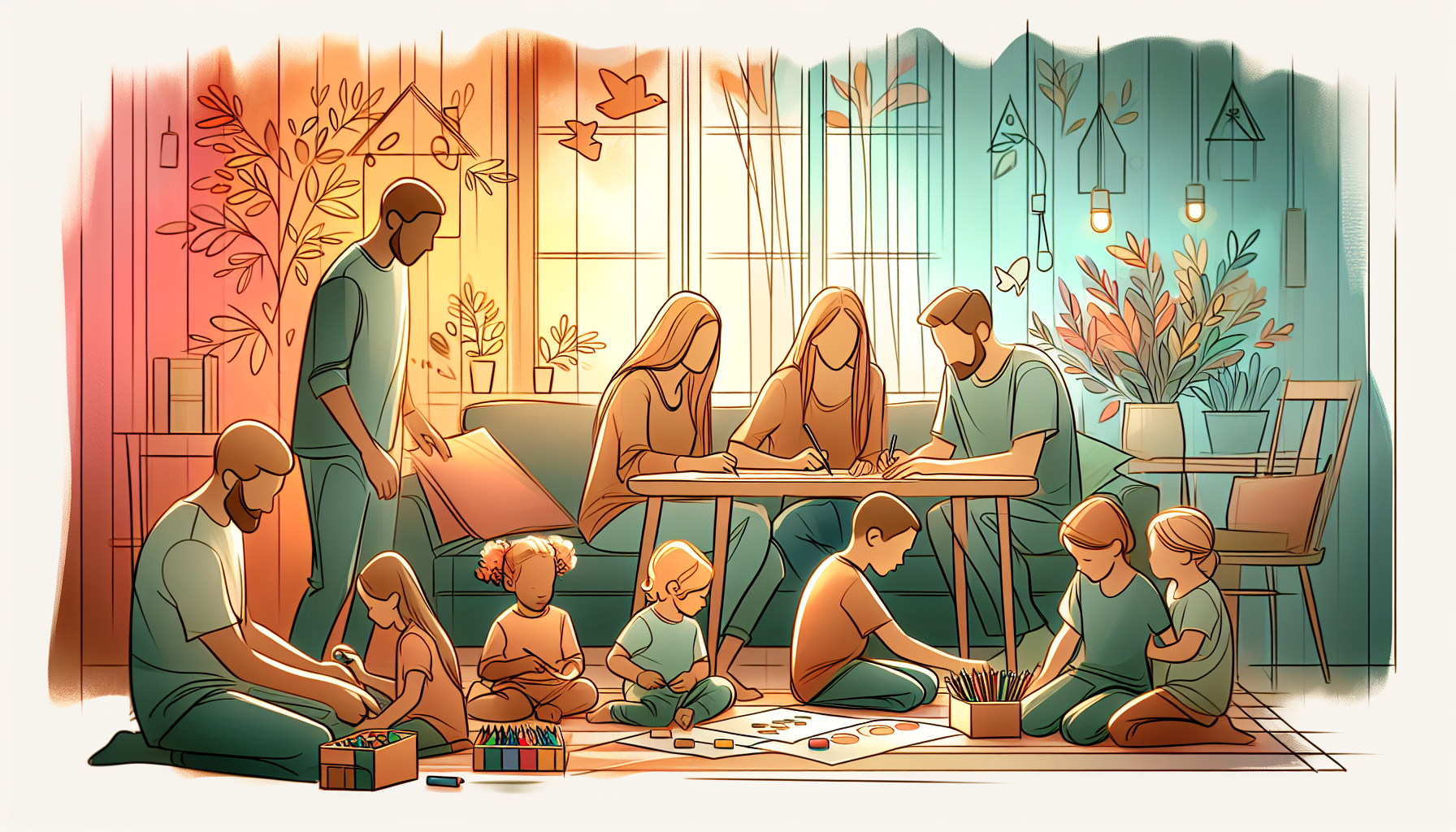“`html
Encouraging Teamwork in Children: Parenting Strategies for Building Social Skills
Introduction: Why Teamwork Matters for Children
In today’s interconnected world, the ability to work well with others is a vital skill for success. For children, learning teamwork is more than just playing games or sharing toys; it is a fundamental part of their development. Encouraging teamwork in children helps them build social skills, fosters empathy, and prepares them to navigate relationships effectively throughout their lives.
As parents, you have a unique opportunity to nurture this skill early on. By fostering collaboration and teaching children how to work together, you’re not only setting them up for academic and professional success but also helping them build emotional resilience. In this article, we’ll explore practical parenting strategies to encourage teamwork in children and strengthen their social abilities.
Main Points: Understanding the Foundations of Teamwork
The Psychological Needs Behind Teamwork
Before diving into strategies, it’s essential to understand the psychological needs that teamwork fulfills in children. According to cognitive-behavioral therapy (CBT), children thrive when their basic psychological needs are met:
- Safety: A child feels secure when they know their contributions are valued and they won’t be judged for mistakes.
- Autonomy: Allowing children to make decisions within a team fosters independence and responsibility.
- Self-expression: Teamwork provides opportunities for children to share their ideas and opinions, boosting confidence.
Understanding these needs can guide you in creating an environment where teamwork is both enjoyable and rewarding for your child.
How Teamwork Builds Social Skills
Teamwork is a powerful tool for developing social skills. When children collaborate, they learn how to communicate effectively, resolve conflicts, and empathize with others. These experiences help them navigate social situations with confidence and ease. For example:
- Communication: Team activities teach children to express their thoughts clearly and listen to others.
- Conflict Resolution: Disagreements within a team are inevitable, but they provide valuable lessons in patience and problem-solving.
- Empathy: Working with others helps children understand different perspectives and develop compassion.
Research has shown that children who engage in teamwork from an early age tend to have better relationships with their peers and perform better in group settings. Encouraging these skills at home sets a strong foundation for lifelong success.
Practical Recommendations: Tips for Parents to Encourage Teamwork
1. Create Opportunities for Teamwork at Home
The easiest way to encourage teamwork is to start at home. Assign group tasks to your children, such as tidying up a room together or preparing a simple meal. These activities teach them how to divide responsibilities and work towards a common goal.
2. Encourage Participation in Group Activities
Enroll your child in activities that require teamwork, such as sports teams, drama clubs, or group art projects. These environments provide structured opportunities for them to practice collaboration and build social skills.
3. Model Teamwork in Your Own Behavior
Children often learn by observing their parents. Demonstrate teamwork in your daily interactions, whether it’s by cooperating with your partner or collaborating with friends. Show your child how to handle disagreements respectfully and work together to solve problems.
4. Reward Teamwork and Celebrate Success
Positive reinforcement can motivate children to continue working well with others. Praise your child for their efforts when they display good teamwork. For example:
- “I’m so proud of how you helped your sibling with their homework!”
- “Great job working together to build that puzzle!”
Celebrating the outcomes of teamwork, such as completing a project or winning a game, can also boost their confidence and enthusiasm for collaboration.
5. Teach Problem-Solving Skills
Equip your child with tools to navigate challenges within a team. Teach them how to identify problems, brainstorm solutions, and compromise when necessary. This not only improves their ability to work with others but also enhances their critical thinking skills.
6. Foster a Growth Mindset
Encourage your child to see teamwork challenges as opportunities to learn and grow. If they face setbacks, remind them that mistakes are a natural part of the process. This helps them develop resilience and a positive attitude towards collaboration.
Conclusion: The Long-Term Benefits of Encouraging Teamwork
Encouraging teamwork in children is one of the most valuable gifts you can give them. By nurturing their ability to collaborate, communicate, and empathize, you’re preparing them for a future filled with meaningful relationships and professional success.
As parents, your role is pivotal in creating opportunities for teamwork, modeling collaborative behavior, and guiding your children through challenges. By following the practical parenting strategies outlined in this article, you can help your child build strong social skills and a foundation for lifelong collaboration.
Remember, teamwork is not just about achieving goals—it’s about fostering connections, understanding others, and growing as individuals. Start small, be patient, and watch your child thrive as a team player.
“`

